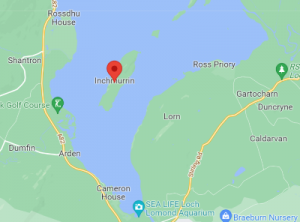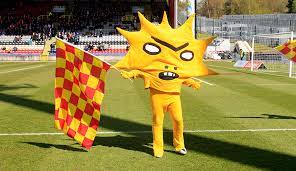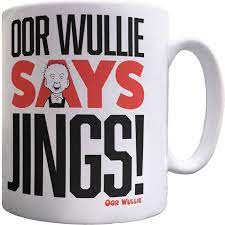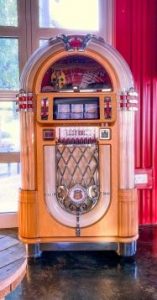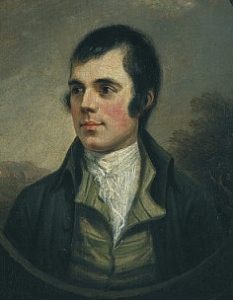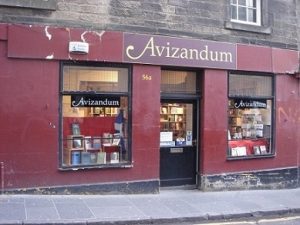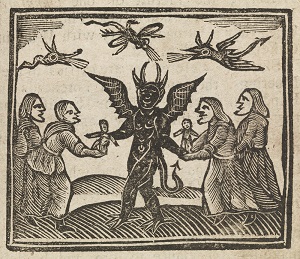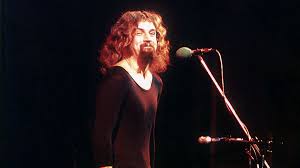
From pixabay.com / © Dimitris Vetsikas
Today, November 30th, is Saint Andrew’s Day, the national day of Scotland. Also, I’m in the middle of reading Douglas Stuart’s 2022 novel Young Mungo, which is set in Glasgow during the 1990s and is choc-a-bloc with cherishable Scots vocabulary: bevvy, chib, doo, midden, schemie, sook, smirr, tattie–bogle, wean, winchin’… Thus, this seems an opportune time to post the latest instalment of my attempt to catalogue my favourite words from the Scots language.
Patter (n) – A long time ago, I remember Iain Jenkins, my English teacher at Peebles High School, trying to explain to my class why William Shakespeare placed Mercutio’s monologue about Queen Mab in the middle of Act 1, Scene 4 of Romeo and Juliet. After all, the monologue didn’t have any bearing on the plot that came before or after it. It was merely Shakespeare showing off his own verbal flamboyance and inventiveness. Eventually, Jenkins exclaimed, “Patter! It’s just patter! It’s Mercutio indulging in a bit of patter!”
Patter, then, is smooth talk, smart talk or funny talk – often delivered by someone, like a politician or a salesman, who’s trying to sell you something. The word crops in phrases like, “I gave her the auld patter,” or “Enough ay yer patter!” And a person who comes out with it a lot is called a patter–merchant. The city of Glasgow seems full of patter–merchants, surprisingly enough.
Pawkie (adj) – used to describe a person possessed of a dry and quietly mocking sense of humour.
Pech (v) – to gasp or wheeze breathlessly. In Robert Louis Stevenson’s short supernatural story Thrawn Janet, you get the line: “Even the auld folk cuist the covers frae their beds an’ lay pechin’ for their breath.”
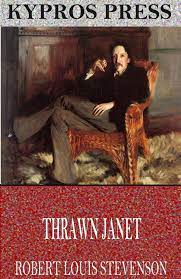
© Kypros Press
Peely-wally (adj) – looking pale and sick-looking. That’s why in Solo (2013), the James Bond ‘continuity’ novel written by William Boyd, there’s a bit where an injured Bond is scolded by May, his formidable old Scottish housekeeper, for looking ‘awfy peely-wally’.
I’d assumed this was derived from ‘peeling wall’, something that obviously doesn’t look healthy. But I’ve recently learnt that peely comes from an early 19th century word peelie, meaning ‘a gaunt, pale person’. And wally is a Scots word meaning ‘made of china’. Even now, people refer to an ornamental china dog as a wally dug and to false teeth (once made of porcelain) as wallies. So peely–wally really means ‘as pale as china’.
Peep (n) – the lowest level at which you can set a gas flame before it goes out. To ‘put someone’s gas at a peep’ is to seriously knock them out of their stride or deprive them of their vigour.
Peewit (n) – a lapwing.
Pieces (n) – sandwiches. Years ago, while I was living with my Dad, I got a job at a local warehouse. I needed to make myself a packed lunch every morning, to eat during the short break I got in the middle of the day. My Dad would always inquire before I left the house if I’d remembered to get my pieces together.
Pisht (adj) – drunk. Just as the Eskimos are said to have a hundred words for snow, there must be at least a hundred words in Scots for being inebriated. See also arsed, bevied, bleezin’, blootered, buckled, fou’, gubbered, hingin’, minced, mingin’, miraculous, miracked, mortal, reekin’, reelin’, steamboats, steamin’, stocious, wellied, etc. This, of course, is a tragic reflection on the state of the Scottish psyche… I wrote, whilst sipping a large whisky.

From pixabay.com / © rebcenter-moscow
Plook (n) – the curse of many a Scottish person’s adolescence, plooks are pus-filled pimples. It was rumoured at my school that every time you ate a Mars Bar, you got a plook. The adjective is plooky and, predictably, this figured in countless playground insults: “Ye plooky bastart, ye!”
Plump (n) – as in ‘a plump ay rain’, i.e., a sudden downpour.
Poke (n) – a small paper bag. I suspect this word is most commonly heard in Scotland’s chippies, where people request ‘a poke ay chips’.
Poultice (n) – an arsehole. For example, “Thon Boris Johnson is a right poultice, so he is.”
Puddock (n) – a frog.
Pure (adv) – popularised by the actress Elaine C. Smith, whose character in the Glasgow-set comedy TV show City Lights (1984-1991) used the catchphrase, “Pure deid brilliant!” Placed before adjectives to amplify their meaning to the nth degree, it crops up in phrases like ‘pure mental’, ‘pure radge’ and ‘pure sleekit’.
Puggled (adj) – exhausted.
Quaich (n) – in the words of the Meriam-Webster dictionary, ‘a small shallow drinking vessel with ears for use as handles.’ These days, ornate quaichs are often used as pint-sized trophies at Scottish sports events.
Quine (n) – a girl or young woman. This is commonly used in Scotland’s North-East, where boys and young men are also described as loons, so you hear a lot about quines an’ loons. In the early 1990s, a group of Scottish feminists, including the journalist Lesley Riddich, started up a magazine called Harpies and Quines – harpy being a word commonly used in Scotland to describe a grumpy, ill-tempered and mean-minded woman. The famous high-society magazine Harpers and Queen failed to see the joke and attempted to sue them.

© Channel Four Films / Polygram Filmed Entertainment
Radge (adj) – violently wild and crazy. Used as a noun, it refers to a mad hooligan. It had humble beginnings in Eastern Scotland, where it may have come from a Romany word with a similar meaning, ‘raj’, but radge was for a while a trendy term used the length and breadth of Britain. This was because of its copious use in Danny Boyle’s hit movie Trainspotting (1996), where it was associated with Robert Carlyle’s ultra-violent character Frank Begbie. I seem to remember the author Irvine Welsh, on whose novel the film was based, remarking disgustedly that he’d heard Hooray Henrys using the word radge in London wine bars. And I also remember Q magazine running an interview with Robert Carlyle under the memorable headline RADGE AGAINST THE MACHINE.
Rammy (n) – a fight or brawl. A stairheid rammy is a brawl that breaks out among the womenfolk in the staircases and on the landings of Scotland’s urban tenement buildings. During the run-up to the Scottish independence referendum in 2014, a heated television debate between then-SNP deputy leader Nicola Sturgeon and then-Scottish Labour leader Johann Lamont was described afterwards by journalist Ruth Wishart as “a right good stairheid rammy” that “made strong men avert their eyes”.
Randan (n) – a drunken knees-up, as in “He’s away oot on the randan!”
Rector (n) – the Scottish term for headmaster.
Redd (v) – to tidy up. I’ve rarely heard this verb used in Scotland, or at least in the parts of it I’ve inhabited. But I frequently heard it during my childhood in Northern Ireland, where a good number of the people are descended from Scots. My Mum would frequently explain, “Get this room redd up!” or “Give that place a wee redd!”
Riddy (n) – an embarrassment. As in: “Liz Truss! What an absolute riddy!”
Right (adj) – uttered with the appropriate intonation, right becomes a contemptuous response, dismissing something that another person has just said. Though for maximum impact, use the phrase Aye, right. “Maggie Thatcher wis the best prime minister since Churchill? Aye, right.” And indeed, Glasgow’s annual book festival is called Aye Write.
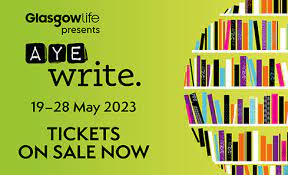
© Glasgow Life
Rone (n) – the length of guttering along the edge of a roof for collecting and removing rainwater.
That’s all for now. More Scots words, and more example-sentences that insult famous Conservative Party politicians, will come shortly…


